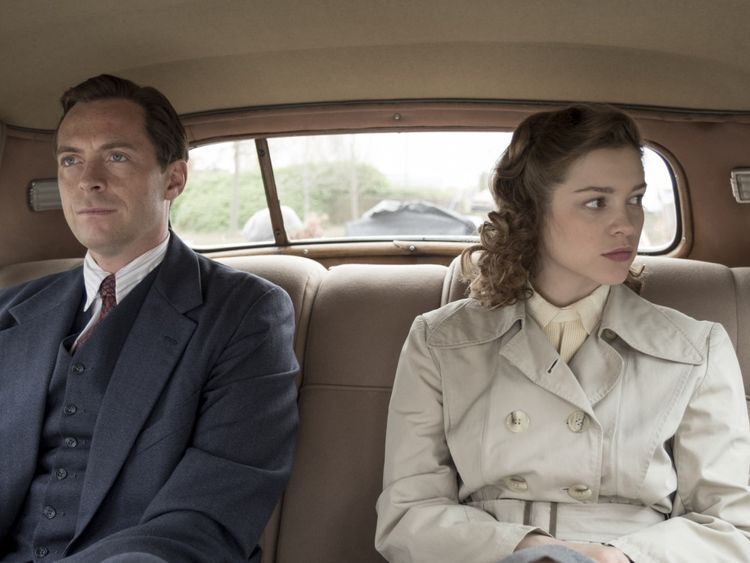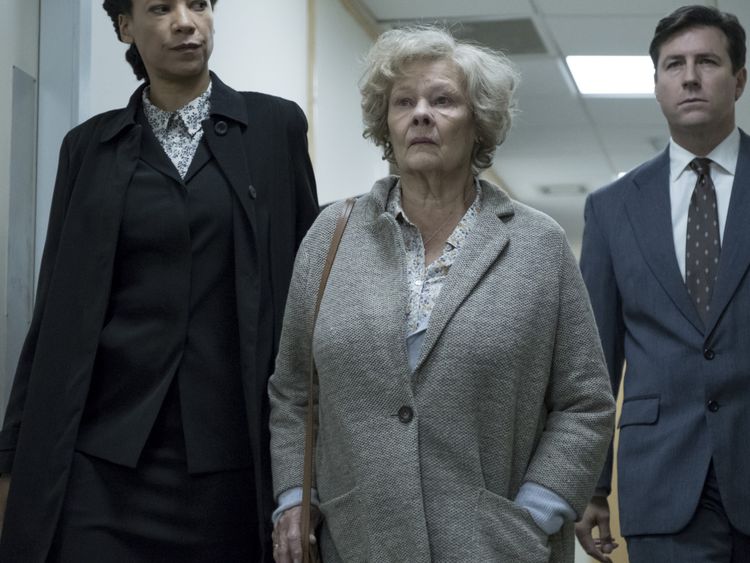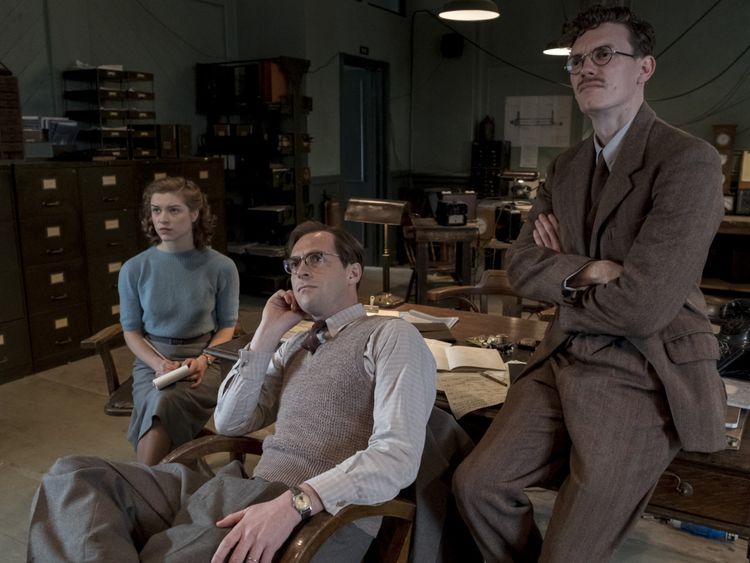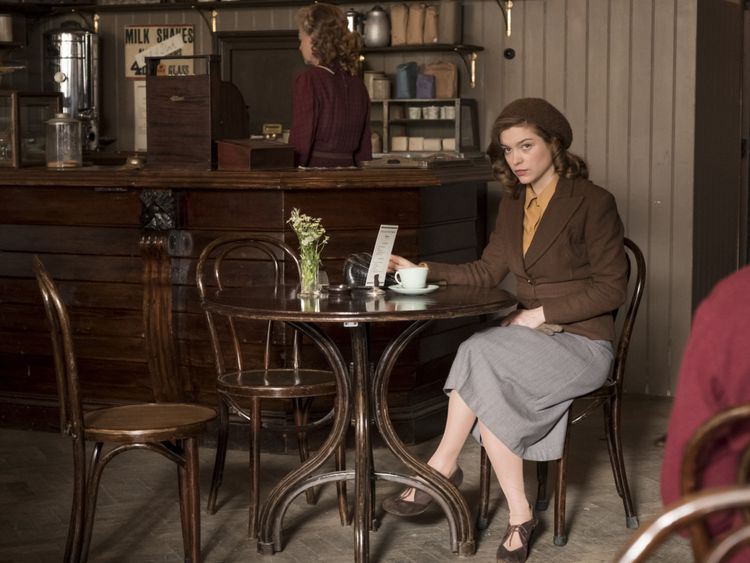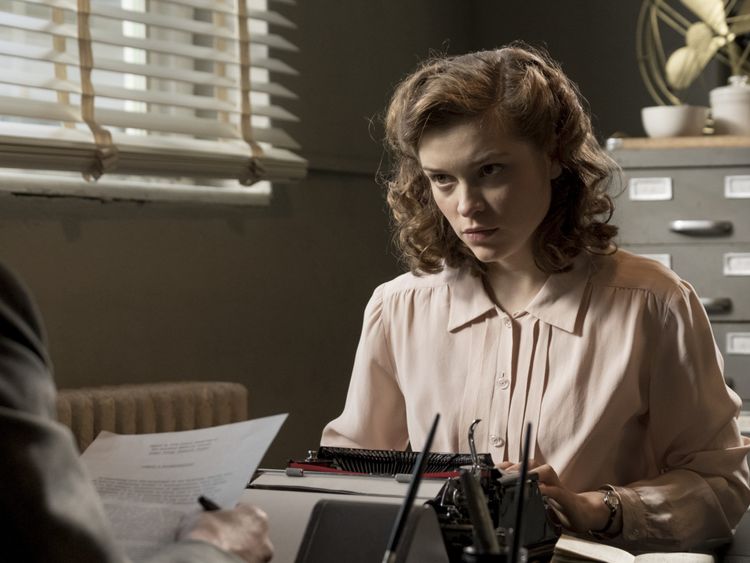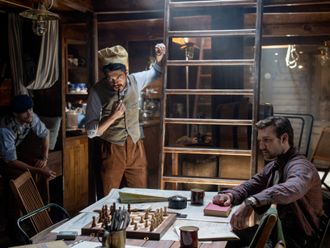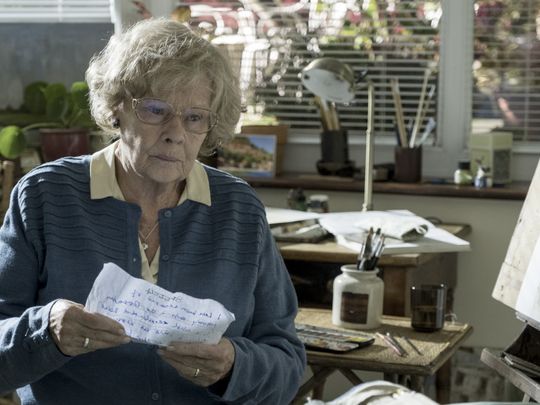
‘Red Joan’ is a traditional production, polished as brass and as old-school diverting as a film starring Judi Dench and directed by Trevor Nunn would have to be.
But there is also a kind of hollowness at its centre, a tone that is more conventional than compelling. ‘Red Joan’s’ time frame and its loosely based-on-fact story line have intrinsic interest, but not all of that potential is realised.
Though Dench is ‘Red Joan’s’ marquee attraction, she appears as Joan Stanley only in the film’s contemporary framing device, introduced in 2000 as a quintessentially British elderly party carefully tending to a garden of brightly blooming flowers.
No sooner are the gardening shears put away, however, than there comes a stern knock on the door and members of the national security-focused Special Branch come bursting in, arresting Joan for 27 breaches of the Official Secrets Act and accusing her of traitorous activities dating back to 1938 and her days as a student at Cambridge.
Joan’s solicitor son Nick (Ben Miles, Group Capt Peter Townsend in ‘The Crown’) angrily insists there must be some mistake, his kindly old mum could not have played fast and loose with national security.
But as the title indicates, there is soon very little doubt that pass secrets Joan did. The question becomes not whether the accusations are true but how and why the deed was done.
Though older Joan periodically reappears to explain herself (“The world was so different then, you have no idea”), much of the story unfolds in flashbacks set between 1938 and 1947, and here Joan is very capably played by Sophie Cookson.
‘Red Joan’s’ script, adapted by Lindsay Shapero from a novel by Jennie Rooney, is based on the exploits of Melita Norwood, a real-life British atomic spy unmasked at a great age, but a glance at the facts shows that the resemblance is far from exact and that the needs of contemporary audiences influenced the film as much as history.
Director Nunn came across Rooney’s novel in a book shop. Though largely known as a prolific producer and director of theatre, including ‘Les Miserables,’ something in this story of innocence and subterfuge intrigued Nunn enough to take it on.
After Joan is arrested, she submits to a lengthy government interrogation, and her answers are the cues for the film’s extensive flashbacks, starting with her introduction in 1938 as an earnest physics major and all around science nerd.
Quite by chance (isn’t it always that way), Joan runs into the scintillating Sonya (Tereza Srbova), an energetic and outgoing refugee from both Russia and Germany, the first Jew she’s ever met and a woman whose radical politics and cavalier disregard for love come as a shock.
Joan tags along with Sonya to film night at the local Communist Party HQ, where she gets the chance to both watch Eisenstein’s ‘Battleship Potemkin’ and exchange significant glances with Sonya’s cousin Leo (Tom Hughes).
Leo turns out to be even more of a radical activist than Sonya, completely believing that communism will remake the world in a more just way. Soon enough, he and Sonya, whom he calls “my little comrade,” are inseparable.
Things are busy for Joan professionally as well, as she is hired to work with handsome professor Max Davis (Stephen Campbell Moore) on the innocuously labelled but very hush-hush “tube alloys project.”
That turns out to be the UK’s version of America’s Manhattan Project, as Britain is loath to be left behind in the worldwide race to weaponise the splitting of the atom.
Though Leo disappears from Joan’s life for big chunks of time, he reappears periodically to pump her for information about her new job, which he has somehow figured out is about nuclear weaponry.
“The Russians deserve to know,” Leo insists, adding that possession of the bomb is essential to the survival of the revolution he believes is the world’s best hope for justice.
In constructing this scenario, clearly aware that Joan’s spying was considered treasonous once it was exposed, the filmmakers have made sure to counterbalance that by treating her with the utmost respect.
For one thing, ‘Red Joan’ insists it was Joan’s familiarity with physics, not just her office skills and attractiveness, that got her hired for the project.
And the film emphasises that her eventual decision to share information with the Soviets had nothing to do with the romantic pressure Leo put on her but was rather motivated by her own idealistic belief that nuclear parity would serve the cause of world peace.
But it’s not only its generic elements and sporadic listlessness that hampers ‘Red Joan,’ it’s that the film’s attempts to convince us of the rightness of her actions don’t succeed either.
To believe that giving the bomb to Russia was the right thing to do is to both ignore the nature of Stalin’s regime (which the film largely does) and to believe that the more countries that have the bomb, the safer we all are. It’s a hard argument to make, and ‘Red Joan’ is not up to making it convincingly.
Don’t miss it!
‘Red Joan’ releases in the UAE on May 30.



